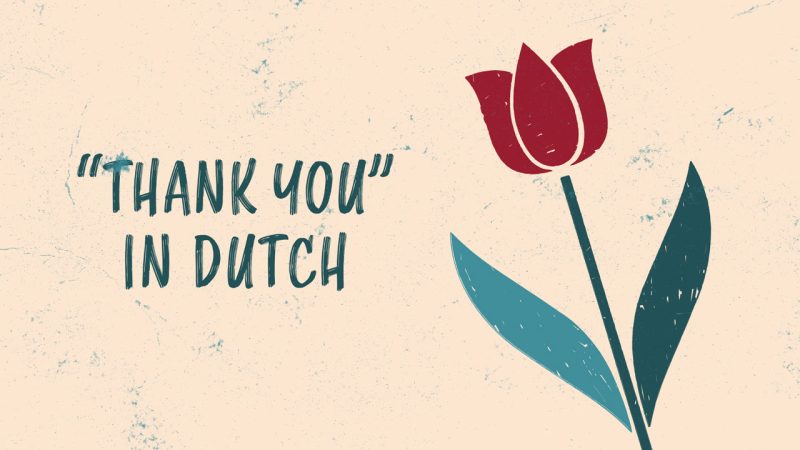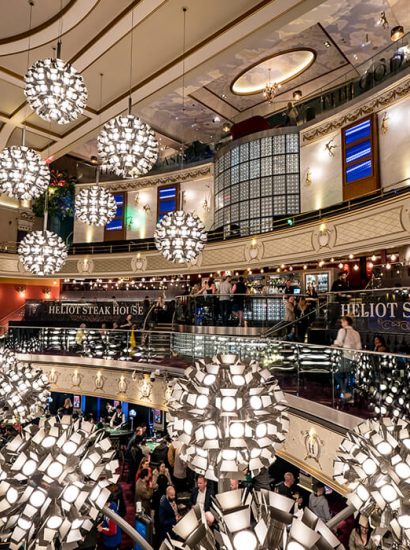When visiting the beautiful Netherlands, understanding a few key phrases can enhance your experience tremendously. One of the most important expressions to master is “thank you,” a universal sign of appreciation that transcends cultural barriers. In Holland, expressing gratitude goes beyond simply saying “dank je.” To truly connect with the locals, it helps to learn various ways to convey your thanks in different contexts. In this article, we’ll explore 10 essential words and phrases that will help you express “thank you in Holland” like a native Dutch speaker.
Dank Je: The Classic Way to Say Thank You in Holland
The most basic and common way to say “thank you in Holland” is “dank je.” This phrase is informal and is used when addressing someone you are familiar with, such as a friend or family member. It’s short, simple, and easily understood across the country. If you’re thanking someone in a casual setting, this is your go-to phrase.
For example, if someone holds the door for you, you can say “dank je.” It is friendly and widely appreciated, making it one of the first words you should learn when expressing thanks in Holland.
Dank U Wel: A Polite Thank You in Holland
If you’re looking to be more polite or formal, especially in situations where you don’t know the person well, “dank u wel” is the phrase to use. This is a more formal version of “thank you in Holland” and is often used in professional settings or when addressing elders and strangers.
“Dank u wel” can be used when thanking a waiter, a hotel staff member, or someone you meet for the first time. The formal tone shows respect and is always appreciated in Dutch culture.
Bedankt: An Informal Thank You in Holland
Another informal way to say “thanks in Holland” is “bedankt.” This is a slightly more casual phrase than “dank je” but still widely accepted. It is often used in day-to-day situations and is considered a friendly way to show gratitude.
You can use “bedankt” when expressing thanks to colleagues, friends, or even when thanking a shopkeeper after a purchase. It is versatile and works well in various contexts, so it’s a handy phrase to have in your vocabulary.
Hartelijk Dank: Heartfelt Thank You in Holland
Sometimes, a simple “thank you” isn’t enough, and you want to express deeper gratitude. In such cases, you can use “hartelijk dank.” This phrase translates to “heartfelt thanks” and is a wonderful way to show genuine appreciation for something meaningful.
For example, if someone goes out of their way to help you or provides you with extraordinary service, “hartelijk dank” lets them know how much you truly appreciate their kindness. It’s a warm and sincere way to express thanks in Holland.”
Veel Dank: Many Thanks as a Way to Say thanks in Holland
For instances where a single “thank you” feels insufficient, “veel dank” is the Dutch equivalent of “many thanks.” This phrase is slightly more emphatic and can be used when thanking someone for going above and beyond.
“Veel dank” is appropriate in both formal and informal settings, making it a versatile expression. Whether you’re thanking a friend for their help or showing appreciation to a service provider, this phrase adds an extra layer of sincerity to your “thanks in Holland.”
Ontzettend Bedankt: Immense Thanks to Express Thank You in Holland
Sometimes, regular gratitude doesn’t quite capture the extent of your appreciation. In such cases, “ontzettend bedankt” is a phrase you can use to convey immense thanks. This is a more enthusiastic way to say “thanks in Holland,” indicating that the person’s help or gesture was particularly significant to you.
For instance, if someone helps you with a complicated task or goes out of their way to make your day easier, “ontzettend bedankt” is a fitting way to show how grateful you are.
Duizendmaal Dank: A Thousand Thanks for a Unique Thank You in Holland
For a more poetic and grand expression of gratitude, you can say “duizendmaal dank,” which translates to “a thousand thanks.” This phrase isn’t used every day, but it is a beautiful and expressive way to say thanks in Holland” when you want to show profound appreciation.
“Duizendmaal dank” is often reserved for situations where someone has done something particularly generous or helpful. If you want to make your gratitude truly stand out, this phrase will certainly make an impression.
Ik Stel Het Op Prijs: I Appreciate It as a thanks in Holland
Another way to express gratitude without directly saying “thank you” is by using the phrase “ik stel het op prijs,” which means “I appreciate it.” This is a more subtle way to convey “thank you in Holland,” often used in more formal or professional settings.
For example, if a colleague helps you with a project or a client provides valuable feedback, “ik stel het op prijs” is a polished and thoughtful way to express your appreciation.
Bedankt Voor Alles: Thank You for Everything in Holland
Sometimes, the gratitude you feel goes beyond a specific act, and you want to thank someone for their ongoing support or help. In such cases, “bedankt voor alles” is a wonderful phrase that means “thank you for everything.”
Whether it’s a long-time friend who’s been there for you through thick and thin, or a family member who consistently helps you out, “bedankt voor alles” is a heartfelt way to express comprehensive gratitude in Holland.
Met Oprechte Dank: With Sincere Thanks as a Special Thank You in Holland
Finally, when you want to convey sincere and genuine appreciation, “met oprechte dank” is an excellent phrase to use. This phrase translates to “with sincere thanks” and is a formal and heartfelt way to express gratitude in Holland.
“Met oprechte dank” is perfect for situations where you want to emphasize the depth of your gratitude, such as thanking someone for their kindness, support, or a significant favor. It’s a formal yet deeply meaningful way to say “thanks in Holland.”
Conclusion
Understanding the cultural nuances of expressing gratitude is essential when visiting or living in a foreign country, and Holland is no exception. By mastering these 10 essential words and phrases, you’ll not only be able to say “thank you in Holland” but also connect with the Dutch people in a meaningful way. Whether you’re in a casual or formal setting, showing appreciation with the right phrase can make a lasting positive impression.
Remember, learning a few key phrases can go a long way in bridging cultural gaps and enhancing your experience in Holland. So the next time someone helps you, offers you a service, or simply brightens your day, you’ll be well-equipped to express your gratitude like a local.
FAQs
Q1. What is the most common way to say thank you in Holland?
The most common way to say thanks in Holland is “dank je.” This is the informal and friendly version, suitable for everyday interactions with friends, family, and acquaintances.
Q2. How do I say thanks in Holland in a formal setting?
In formal settings, you should use “dank u wel.” This phrase is more polite and respectful, perfect for thanking strangers, elders, or in professional environments.
Q3. What is the difference between “bedankt” and “dank je”?
“Bedankt” and “dank je” both mean thanks in Holland, but “bedankt” is slightly more casual. “Dank je” is more commonly used, while “bedankt” can be used when you want to be extra friendly.
Q4. When should I use “hartelijk dank”?
You should use “hartelijk dank” when you want to express heartfelt gratitude. It’s a more sincere and emotional way of saying thank you, suitable for more meaningful gestures.
Q5. Is it necessary to say thanks in Holland for small favors?
Yes, it’s always a good idea to say thanks in Holland, even for small favors. The Dutch appreciate politeness and acknowledging someone’s effort, no matter how minor, is seen as courteous.
Also read: Wrist Watch Travel Case: 10 Must-Have Options for Your Next Trip








